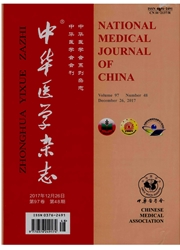

 中文摘要:
中文摘要:
目的探讨海洛因成瘾者与冲动性决策行为相关的脑区功能定位,从决策行为角度来解释海洛因成瘾和复吸的神经机制。方法运用神经心理学实验范式,对海洛因成瘾组(HA组)和健康对照组(HC组),两组各20例。在执行爱荷华赌博任务(IGT)时同步进行功能磁共振成像(fMm)扫描,数据采集后使用SPM5软件进行分析,对与冲动性决策行为相关的脑区进行功能定位,并了解其功能变化。结果IGT的行为学结果发现,随决策次数递增,HC组被试的净分数逐渐提高,而HA组被试的净分数无增加(始终保持在-1—0)。fMRI发现两组被试执行1GT时右侧前额叶眶部(OFC)、右侧额叶背外侧部(DLPFC)、左侧前额叶腹内侧部(VMPFC)和前扣带回(ACC)均有激活;HA组的右侧OFC的激活程度强于HC组,但右侧DLPFC和左侧MPFC的激活强度低于HC组;同时HA组的右侧豆状核、右侧丘脑、右侧岛叶、海马、左侧尾状核亦出现激活。结论海洛因成瘾者在行为学上存在冲动性决策障碍,前额叶等冲动性决策行为相关的脑区存在功能异常,这可能是其成瘾行为的产生、维持和复吸的原因之一。
 英文摘要:
英文摘要:
Objective To explore the brain regions associated with impulsive decision-making behaviors and interpret the nervous mechanism for addiction and relapse in heroin abusers. Methods Using the paradigms of psychological experiment, the subjects in both heroin addiction group ( HA group) and normal control group (HC group) performed Iowa gambling task (IGT)and simultaneously underwent functional magnetic resonance imaging (fMRI) scan. All the above data were gathered and then analyzed by SPM5 software to explore both the brain regions and their functional changes correlated with impulsive decision-making. Results Evidence by IGT behavioral consequences demonstrated that the net scores in HC group increased with numbers of decision-making whereas no increment (fluctuating between - 1 and 0) was observed in HA group. Based on the results of fMRI analysis, right orbitofrontal cortex (OFC), dorsolateral prefrontal cortex (DLPFC), left ventromedial prefrontal cortex (MPFC) and anterior cingulate cortex (ACC) were activated in both groups. But the right OFC was more active while the right DLPFC and left MPFC were weaker in HA group versus the HC group. Meanwhile, activation of right lenticular nucleus, right thalamus, right insula, hippocampus and left candate nucleus were observed in HA group. Conclusion Heroin abusers are incapable of impulsive decision-making in behavioral studies. Such a brain region as prefrontal cortex participates in the decision-making performance and control of impulsiveness. Functionally abnormal brain regions correlated with impulsive decision-making may be one cause of genesis, maintenance and relapse of heroin addiction.
 同期刊论文项目
同期刊论文项目
 同项目期刊论文
同项目期刊论文
 期刊信息
期刊信息
